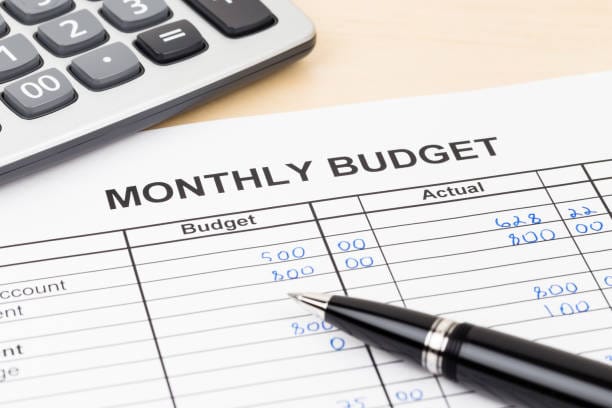How to Plan Monthly Expenses and Avoid Loan Defaults in India

Avoiding loan default in India starts with smart financial planning and disciplined expense management. Whether it's your first loan or you're juggling multiple EMIs, timely payments are the key to maintaining a strong credit score and financial stability. This guide covers everything from EMI management strategies to loan restructuring options in India.
Understanding the Importance of Financial Planning
Effective budget planning ensures that you meet your monthly obligations, especially loan repayment. If you default on a loan, it negatively impacts your credit score and may trigger legal and financial consequences. Timely monthly expenses tracking and planning are the first steps to staying debt-free.
Step 1: Assess Your Income and Fixed Expenses
A strong monthly budget plan for loans begins with understanding where your money comes from and where it goes.
Fixed Expenses:
- Rent
- Loan EMIs
- Insurance premiums
- Utility bills
Variable Expenses:
- Groceries
- Transport
- Dining out
- Entertainment
Savings & Investments:
- Emergency fund
- Retirement planning
- SIPs or mutual funds
Step 2: Prioritise Loan Repayments
Missing EMIs impact your credit score and increase your debt burden. Here are some smart EMI management strategies:
- Set up auto-debits for EMIs and utility bills.
- Use apps for expense tracking to avoid payment delays.
- Keep a dedicated account for repayments.
Step 3: Create a Realistic Monthly Budget
Use the 50/30/20 rule to structure your budget:
- 50% Essentials – EMIs, rent, groceries
- 30% Lifestyle – Dining, shopping, entertainment
- 20% Savings & Debt Repayment – Emergency fund and extra EMI payments
This helps ensure you never fall short during repayment cycles and helps avoid loan default in India.
Step 4: Monitor Your Credit Report Regularly
Regular checks on your GoodScore credit report allow you to:
- Track loan repayment history
- Spot errors early
- Monitor credit utilisation
Use this information to maintain a 750+ credit score, which opens doors to lower interest loans and premium credit cards.
Step 5: Avoid Over-Borrowing
Over-reliance on loans or credit cards can be a recipe for default. Here’s how to be cautious:
- Borrow only what you can repay
- Avoid unnecessary credit
- Keep your credit card usage below 30%
Step 6: Build an Emergency Fund
One of the smartest steps to manage your money and prevent defaults is creating a fallback fund. Save at least 3–6 months’ worth of expenses to cover EMIs during tough times.
Step 7: Explore Loan Restructuring Options in India
If you're struggling to repay your loans, consider loan restructuring options in India. Many lenders offer:
- Extended tenures
- Reduced EMI amounts
- Temporary moratoriums
This helps you avoid default while staying on track financially.
Step 8: Increase Income, Cut Unnecessary Spending
If your monthly expenses are overwhelming, you may need to:
- Take on freelance or side income
- Use best apps to track monthly expenses
- Cancel subscriptions or cut down on luxury spending
Financial planning isn’t just about tracking expenses—it's about adjusting them to avoid loan default in India.
What Happens if You Default on a Loan?
Missing payments can have serious consequences:
- A drop in your credit score
- Harassment from recovery agents
- Legal action from lenders
- Difficulty in securing future loans
This is why debt repayment plans and budgeting are essential.
Best Practices to Keep a High Credit Score
- Pay all EMIs and bills on time
- Maintain low credit utilisation
- Don’t apply for multiple loans at once
- Check your credit report often
- Plan your budget every month
Conclusion
Avoiding loan default in India is possible with proactive financial management, consistent budgeting, and disciplined EMI planning. Whether it's your first loan or you're managing multiple debts, staying in control of your finances is the key to long-term success.
Download the GoodScore app to get a detailed step-by-step plan that improves your credit score and guides you to make better financial decisions.
FAQs
1. What are the best budgeting tips to avoid loan default?
A: Start by tracking all expenses, creating a loan-focused budget, and automating your EMIs. Build an emergency fund and avoid impulsive borrowing.
2. How to plan monthly expenses effectively for loan repayments?
A: Use the 50/30/20 rule and prioritise EMIs within the essentials bucket. Allocate a portion of income toward a debt repayment plan.
3. What are the smart ways to repay loans on time?
A: Use auto-debit features, set repayment reminders, and consider part-prepayments. Explore loan restructuring options in India if you're struggling.
4. Why is financial planning key to avoiding debt and defaults?
A: Good financial planning prevents overspending, ensures timely repayments, and protects your credit score.
5. How can apps help in managing monthly expenses and loans?
A: Apps offer expense tracking, EMI reminders, and budgeting tools to help manage your monthly budget plan for loans efficiently.